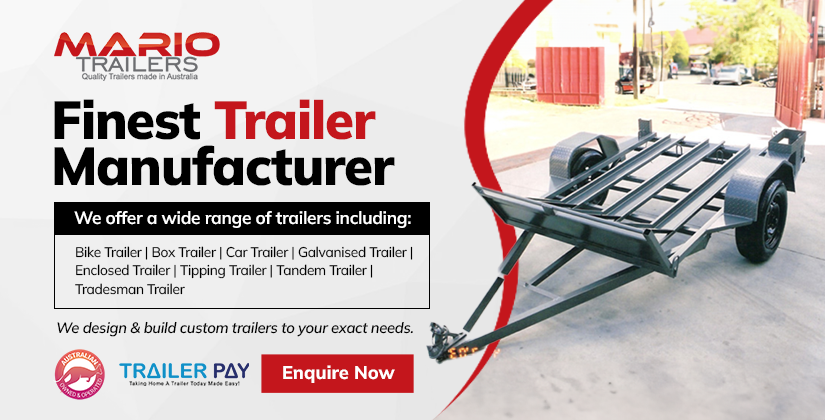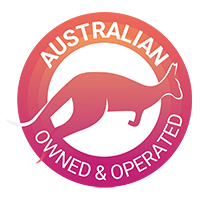Box Trailer Buying Guide
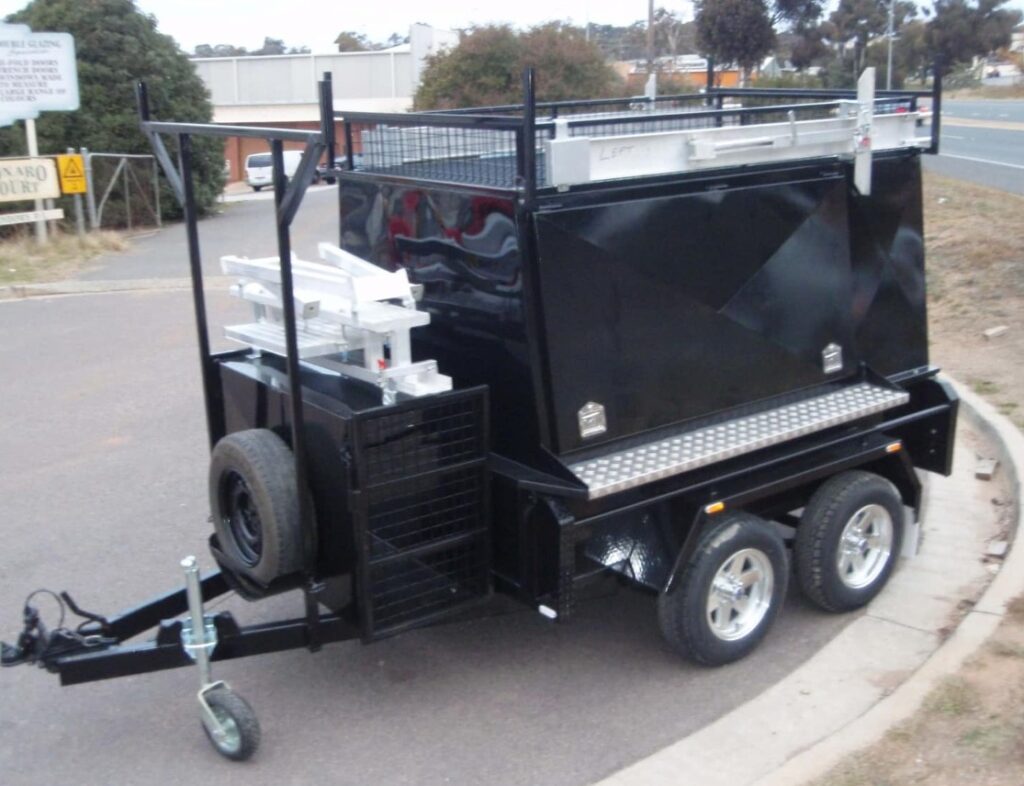
Box trailers are wonderful to tow equipment like instruments, motorbikes, cars and other stuff. A box trailer can also be locked up entirely so that no one meddles with the contents. Different types of box trailers are available on the market, designed to bear a variety of load. Mario Trailers is your one-stop destination where you’ll get a diverse range of trailers for different purposes.
It’s imperative to know how the box trailer is to be used, the size of the box trailer that is required, and which type of the box trailer is needed. It is really difficult to buy the right box trailer without thinking and taking into account below-mentioned essentials:
1. Do You Need a Box Trailer for Transporting Equipment?
These trailers are commonly used for carrying equipment or gears to and from job locations. In order to keep the equipment clean and dry, several engineering, construction and landscaping companies utilise box trailers. For easy access to the interior, the trailer typically has a loading door and may also have a side door. To keep the equipment in place while the trailer is in motion and being towed along, box trailer typically has an array of hangers, hooks, and cubbies.
2. Do You Need a Box Trailer for Carrying Motorbikes?
Box trailers are especially good for taking motorbikes to bike events that are located in remote areas. There are certain box trailers that are particularly made for carrying motorbikes. They come with ramps, rails and places for fixing. This aids the safe carrying of bikes without causing any type of damage on a lengthy trip. You will get one, two or three rail trailers that can carry one, two or three motorbikes.
3. Do You Need a Box Trailer for hauling a Car?
There are separate trailers made for carrying cars. Compared to ordinary box trailer, these are often heavy duty and broader. These trailers often have a heavy-duty coupler and structure. Buying the perfect box trailer for a specific use can be a little confusing with a variety of types, sizes and uses available. It is recommended to drive your car or vehicle that you plan to use as the hauling vehicle to the trailer dealership or take exact measurements of the tow vehicle before buying a box trailer.
Box Trailer Maintenance Tips
The bottom line is it’s always advantageous to know the primary function for which you need to buy a specific type of a box trailer.
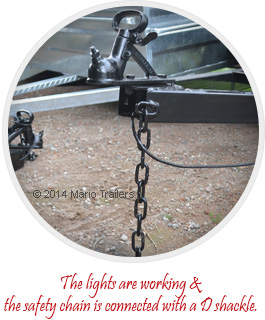
- Prior to each trip ensure that the vehicle and the trailer are road worthy, the tyres are properly inflated, trailer bearings, suspension and brakes are working correctly, the lights are working and the safety chain is connected with a D shackle.
- During each trip ensure that the coupling and load is properly secured and that the tyres are properly inflated and not rubbing on the suspension and bodywork.
- As paint doesn’t coat inside the hinges and the coupling, we recommend that customers spray WD40 on these areas. WD40 prevents the metal from rust and corrosion as it shields against moisture and rusted parts and keeps these parts working freely.
- Trailer hubs require routine servicing and are important as the hub assembly connects the tyres to the trailer axle. If the hubs aren’t installed correctly, maintained or corrode, the tyres become out of alignment and this can lead to damage to your trailer, your towing car and what you are towing in the trailer. To service the trailer hubs, remove the bearing dust cover and ensure the bearings are greased.
- Check the plug and the wiring on the trailer to ensure that the lights are working correctly.
- Check the condition of the tyres, rims and that the wheel nuts are tightly bolted.
- Drive to the conditions of the road.
- Ensure that the trailer is suitable for the load and the road conditions.
- Operate the vehicle and the trailer in accordance with road rules and legislative requirements.
- Ensure that the tow hitch coupling is secure on the tow ball and the safety chain is connected.
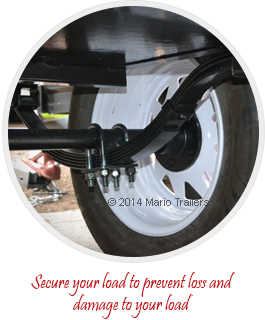
- Ensure that the safety chain and the light leads do not drag on the road whilst travelling.
- Ensure that Jockey Wheels, Gates and Ramps are secure and stowed away prior to travelling.
- Check all lights on the vehicle and the trailer prior to every trip.
- Secure your load to prevent loss and damage to your load.
- Load and unload the trailer on level surfaces and use correct manual lifting techniques.
- Keep hands away from moving parts of the trailer.
- Do not overload your trailer, have an unsecured load or have a dangerous overhanging load.
- Do not operate vehicles if tired, suffering any medical condition, under the influence of alcohol or drugs or any other condition that may cause a danger to yourself or others.
- Do not exceed the speed limit for the vehicle or the towing vehicle.
- Do not leave towing vehicles running whilst unattended.
Helpful Hints
- We recommend that customers purchase a spare hub and bearings for their trailers.
- Depending on how often you use your trailer, we recommended that servicing be undertaken every three to six months.
- Allow extra distance when braking, turning and overtaking when towing a trailer.
- Distribute the weight of the load evenly over the axles.
- Tyres deflate from standing and they should be inspected every time the trailer is used and inflated as required.
- Wheel bearings should be serviced and greased every six months as they can deteriorate from standing for long periods of time.
- Brakes on trailers should be checked every time the trailer is used.
Uses & Towing Tips for the Box Trailer
Uses of the Box Trailer
A box trailer is of great use for home handymen, tradesmen and also someone who need to transport various types of materials from one location to another. Box trailers are available in different sizes to suit diverse requirement, which includes transport of furniture, gardening material, equipment and much more. A box trailer can be easily stored because they are compact and the flexibility of box trailers renders an easy solution for many applications. Many businesses like carpenters, landscapers, lawn mowing services, plumbers and other trade-oriented companies’ gain from the inclusion of a box trailer to their vehicle fleet.
A box trailer is not that expensive if you want to buy one for fulfilling your needs and it requires a minimum of maintenance. For any homeowner, a box trailer would be a valuable asset. Standard box trailers come in 6 x 4, 7 x 4, 7 x 5, 8 x 4 and 8 x 5 sizes. The 6 x 4 box trailer can be easily used for most of the situations.
Vital Towing Tips for the Box Trailer
There are several considerations that decide how your box trailer will perform when towed at the back of your vehicle. The main concern before commencing any trip is the safety of yourself and other commuters on the road:
On The Road: The most difficult part of towing is reversing and it is more challenging with the smaller trailers. When you’re driving with a trailer at the back, it is imperative that you drive using a more conservative style so that you can avoid risky situations. The best practices include lowering the towing speed, refraining from sharp braking and steering situations and reversing should be done with extra care.
Weight: Trailer’s weight bearing capacity and the towing capabilities of the vehicle both are equally important.
Load: It is ideal to load through the centre and towards the front instead of the rear, which will assist in towing smoothly. Also, it is recommended to cover up and tie down the load to ensure no part is lost when journeying.
About Mario Trailers
Mario Trailers manufactures and supplies a huge range of trailers such as bike trailers, box trailers, car trailers, camper trailers and many other types of trailers. Mario Trailers have over 23 years of solid industry experience, so you can buy with confidence as all our trailers are built to last the toughest Australian weather conditions. Mario Trailers follow strict Australian standards to manufacture all types of trailers and so you can completely depend on Mario Trailers for delivering the best trailers for your needs.
